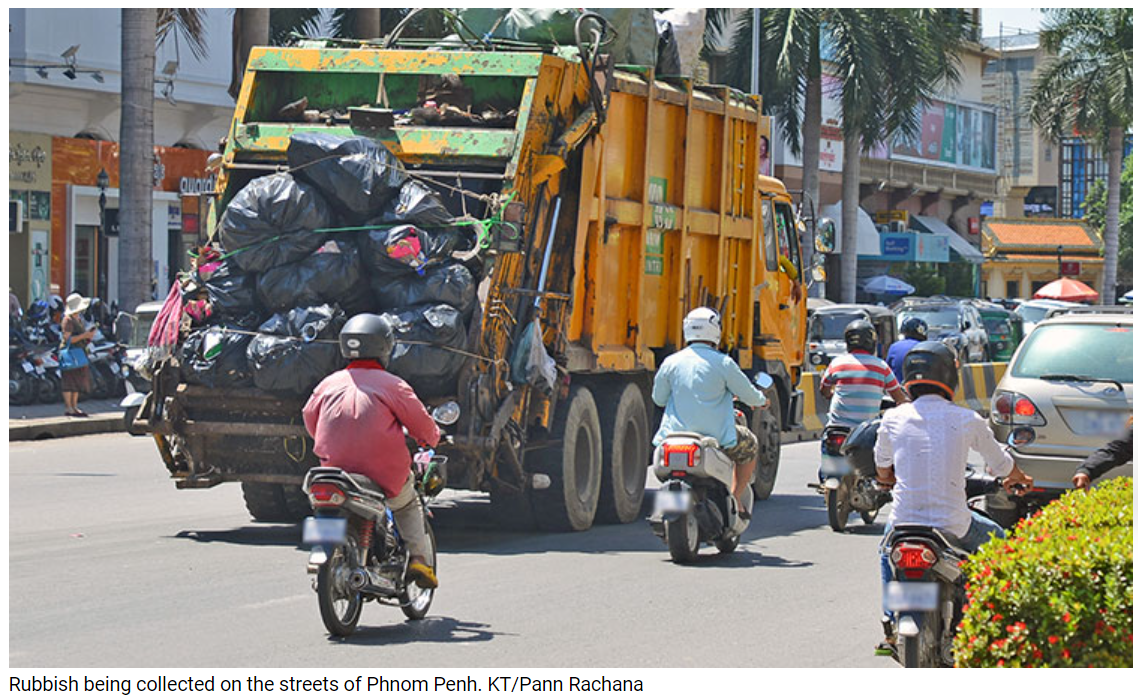Cambodia: Waste to Energy projects offer a solution to Kingdom’s growing garbage problem
As Cambodian incomes rise and the population consumes more it is also generating increasing amounts of waste. The growing piles of garbage are a threat to health, the environment and the climate.
“There is a waste crisis in Cambodia. There is a lot of waste and the system to take care of waste is not fully developed yet,” said Leif Holmberg, a UNDP Environmental Policy Specialist.
In the case of Phnom Penh the volume of waste increased more than three-fold between 2007 and 2019. The city’s residents and businesses currently generate around one million tonnes of rubbish.
Waste to Energy (WTE) projects offer a solution, but not a simple one, according to Richard Guit, a partner at law firm Ashurst, which is one of the world leaders in WTE project implementation.
“Even the largest projects, at 400,000 or 500,000 tonnes per annum of waste, are only going to produce 40 megawatts of electricity,” he said. “In themselves they’re not going to solve a power issue. They’re not going to contribute materially to the power generation portfolio of any particular country.”
They do, however, cut the amount of landfill and generate a consistent energy supply, unlike wind and solar power, he said.
In order for WTE projects to be viable the government needs to address three issues according to Guit. It needs to draw up a legal and policy framework to ensure a consistent supply of waste, improve the financial viability of projects and prove they can be a success by running pilot schemes in Special Economic Zones.
“In Cambodia we have a great starting point. We actually have regulations that categorise waste,” he said. “We have municipal solid waste and regulations for industrial waste or construction and demolition, and e-waste [electronic products] and hazardous waste. The responsibility of management for both collection and landfills rests with local authorities.” Municipal governments may not have the resources to pay Guit said, so the central government should consider stepping in with an eye to attracting private capital further down the road.
The government is taking steps to address the issue. This year the Ministry of Environment released the National Economic Strategy and Action Plan 2021-2035.
“The objective is to move from a linear economy, which is to take and use and dispose, and where waste is wasted and instead of this linear model adopt a circular economy strategy and close the loop where waste is used for valuable resources, including energy,” said Moeko Saito-Jensen, an Environmental Policy Specialist at UNDP Cambodia.
The government’s top priority is waste prevention, followed by reusing and repairing products, recycling what can’t be fixed, then energy recovery through WTE. Disposal is the final option.
“Waste management has become a priority for the government in the last few years and many positive initiatives have been taken,” Holmberg said. “We are now in a context with a climate crisis and that is moving to the top of the political agenda. Cambodia has submitted its NDC [Nationally Determined Contribution], the climate plan to the Climate Convention, where the waste sector is one of the areas of action.”
The NDC plans to tackle Cambodia’s rising rubbish problem through landfill management, composting, recycling, refuse derived fuel and turning organic waste into biogas.
Source: https://www.khmertimeskh.com/50976261/waste-to-energy-projects-offer-a-solution-to-kingdoms-growing-garbage-problem/


 Thailand
Thailand




